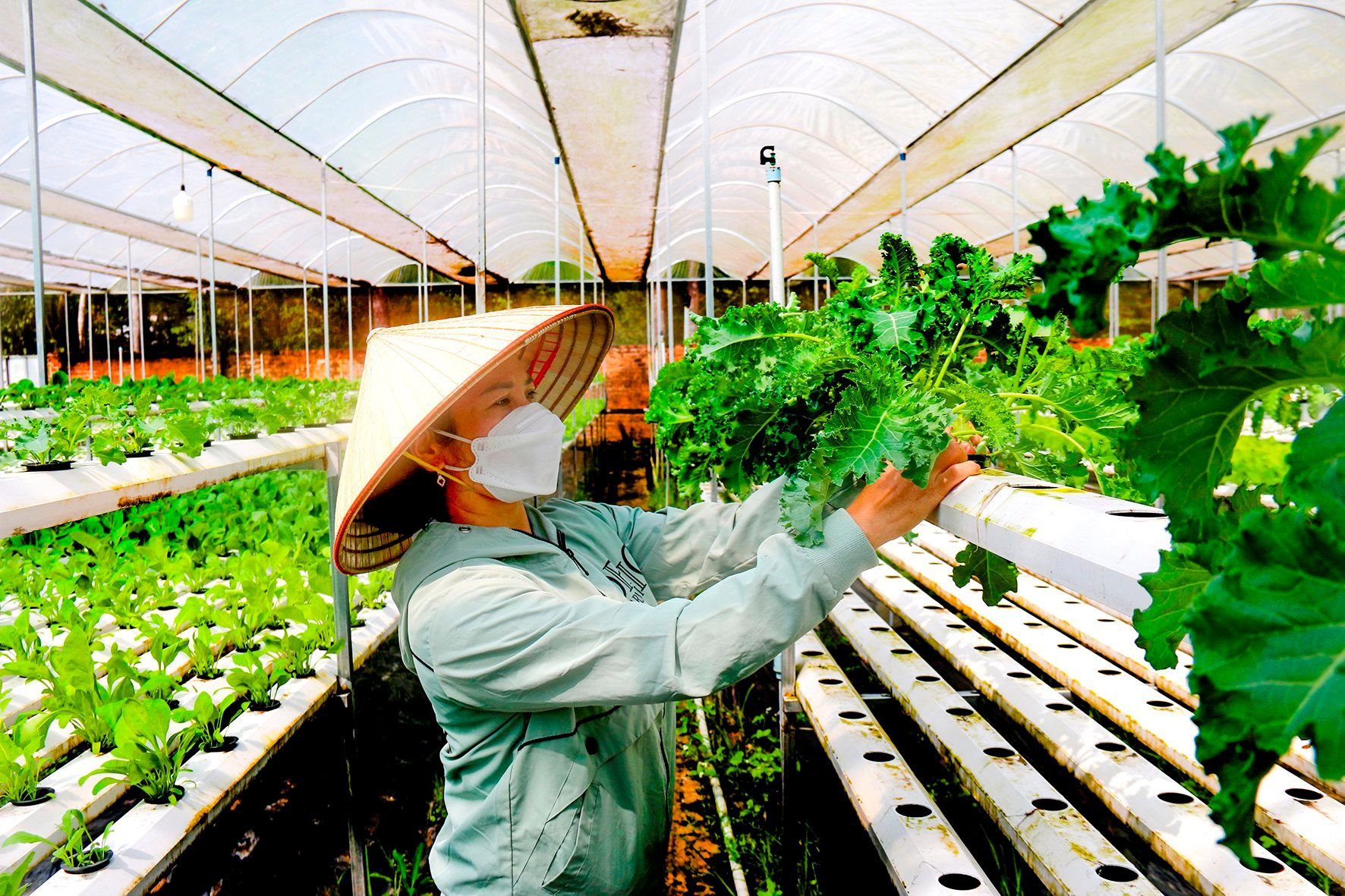Summary of the Politburo’s Resolution No. 13-NQ/TW: Making the economic collectives an important part of the national economy
Politics - Ngày đăng : 08:03, 18/05/2022

Photo: Dinh Hoa
Results and limitations
In 2002, Binh Thuan implemented Resolution No.13 in a small-scale economy context, mainly agricultural production, and low competitiveness. The propaganda of the Party's guidelines, the State's policies, and laws on collective economic development has not been properly focused on. Awareness of all levels, branches, cadres, party members, and people about the position, role, necessity, and objectiveness of the collective economic development is not profound; fear and lack of trust in the old model of cooperatives have affected the development of the collective economy and cooperatives in the whole province.
Resolution No.13 of the Central Committee of the Party - Session IX has raised the awareness of all levels of Party committees, authorities, officials, party members, and people about the position, role, and the importance of the collective economy in the socialist-oriented market economy. The new model of cooperatives under the Law on Cooperatives in 2012 is being gradually formed and replacing the old model of cooperatives. Cooperatives have focused on innovating management methods, saving costs, stabilizing product prices, strengthening market demand analysis, actively entering into joint ventures, and linking with cooperatives and enterprises inside and outside the province. Whereby not only the input services are provided but the output products also are guaranteed its consumption for local people. Many cooperatives have gradually been consolidated, renewed, and improved the quality of their operations, contributing to the socio-economic development of the locality. People's Credit Funds operate quite effectively, maintain a safe credit capital ratio, and do not exceed permitted levels. The loan structure focuses on serving agricultural production, rural development, and business and service lines.
Besides the achieved results, there are limitations in the implementation process that must be directly admitted. These are the inspection and supervision of the implementation of the action program, and the implementation plan the Resolution No.13. Currently, Resolution No.13 at all levels, branches, and localities has not regularly and timely proposed solutions to handling difficulties and obstacles in the process of consolidating, arranging, and renovating the cooperative's activities. The consolidation and development of the collective economy, the core being the cooperative has not yet met the set requirements; the work of consolidating the Steering Committee for innovation, development, and improvement of collective economic efficiency is still slow; The cooperative development is slow, unstable, and uneven among localities, sectors, and fields. The feasibility of the production and business plan is not high, and the financial management in many cooperatives is not transparent and has not been accounted for according to regulations. The operational efficiency of many cooperatives is still low; There are not many cooperatives producing according to value chains and applying high technology. The cooperative groups do not have a specific plan or action plan; Most of the members of the cooperative group are still weak in terms of professional expertise and management, mainly operating based on experience, and the limited ability to access policies and unions of cooperatives.
More effort, more determination
In the coming time, the trend of international integration and globalization will still be the mainstream. Vietnam increasingly integrates into the world deeply and widely, creating many opportunities in expanding markets, developing trade, and other economic relations, whereby the collective economy and cooperatives are facilitated to operate in a more efficient environment. However, international integration also creates fierce competitive pressure, requiring the collective economic sector and cooperatives to constantly improve their competitiveness in terms of product quality, management, and organization in producing and consuming goods for efficient and sustainable development. In particular, at the closing session of the 5th Conference of the Party Central Committee - term XIII, when referring to the content of collective economic development, General Secretary Nguyen Phu Trong requested: " Must be aware that developing and improving the operational efficiency of the collective economy is the task of the whole political system. Party committees and governments at all levels must directly lead and direct collective economic development and consider this an important and regular political task. The Fatherland Front, socio-political organizations, and cooperative alliances must closely coordinate in propagating and mobilizing the masses to participate in collective economic development.” Therefore, in the coming time, the first thing is that all levels, branches, and localities need to thoroughly grasp and strictly implement the Central Government's resolution on collective economic development to ensure compliance with the requirements and nature of the market economy, socialist orientation, and deeper international integration. It must be regularly paid attention to innovation, development, and improvement of the efficiency of the collective economy and the cooperative economy, with the core being new-type cooperatives-considered as an important economic component along with the state economy becoming the more and more solid foundation of the national economy.
Continue to encourage development, replication, collective economy, and effective models; create conditions for the household economy to develop in key fields. Ensure the harmonization of interests of stakeholders in the value chain; creating favorable conditions for the formation of high-tech and efficient agro-industry-service complexes. Continue to strengthen and improve the quality of operations of existing cooperatives, and at the same time review the situation of collective economic activities in each locality, focus on completely dealing with weak cooperatives, and stop operating or not following the rules. principles of the Law on Cooperatives 2012. Supporting cooperatives to expand their markets; mobilize all capital sources to invest in equipment and technology renewal; organize for the collective economy, cooperatives participate in the chain of production, processing - consuming of products... intending to make the collective economy grow stronger, more dynamic, efficient and sustainable become an important economic component of the socialist-oriented market economy.
